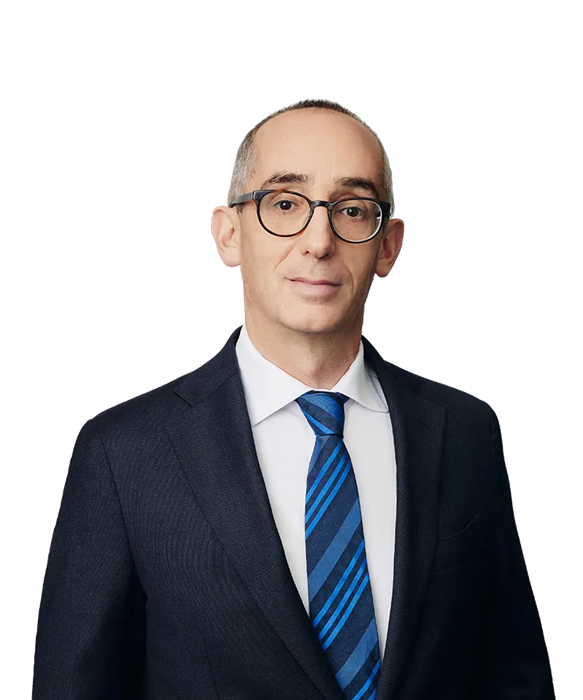Clarification on Rules Relating to the Removal of Directors by Shareholders
In OneMove Capital Corporation v. Dye & Durham Limited (“OneMove v. D&D”), the Ontario Superior Court of Justice (the “Court”) held that shareholders may not submit a proposal under section 99 of the Business Corporations Act (Ontario) (“OBCA”) for the purpose of removing a director at a scheduled shareholder meeting. Instead, where a shareholder wishes to have a director removed from the board, the shareholder must requisition a special meeting under section 105 of the OBCA for this purpose.
Background
OneMove Capital Corporation (“OneMove”), an activist shareholder of Dye and Durham Limited (“D&D”), made a proposal (the “OneMove Proposal”) to hold a shareholder vote to remove its then appointee to the D&D board (the “Board”). The OneMove Proposal requested that the shareholder vote be conducted at an upcoming special meeting (the “Special Meeting”) separately requisitioned by another activist shareholder, Engine Capital LP, for the purpose of removing and replacing certain D&D directors other than OneMove’s appointee. The Board sought to, and successfully invalidated, the OneMove Proposal.
The following key facts informed the Court’s decision:
- OneMove and Plantro Ltd., another shareholder of D&D, entered into an Investor Rights Agreement (“IRA”) concerning the business and affairs of D&D. Under the IRA, OneMove was entitled to nominate a director to the Board, whom D&D’s shareholders ultimately elected to serve as a director (the “OneMove Director”).
- In early 2024, OneMove claims it lost confidence in the OneMove Director and asked him to resign. The OneMove Director refused to resign expressing the view that to do so would be inconsistent with his fiduciary duties to D&D and all of its stakeholders. Around the same time, Engine Capital requisitioned the Special Meeting under s. 105 of the OBCA for the purpose of removing three incumbent directors, none of whom were the OneMove Director.
- In June 2024, OneMove delivered the OneMove Proposal under section 99 of the OBCA to remove and replace the OneMove Director at the Special Meeting, demanding the OneMove Proposal be included in the circular for the Special Meeting. D&D responded that it was willing to nominate OneMove’s new nominee for election, but was unwilling to include the OneMove Proposal in the Special Meeting circular because the OneMove Proposal was invalid.
Principal Legal Consideration
The principal legal consideration before the Court was whether a proposal under section 99 of the OBCA can be used to remove an incumbent director at a pending meeting of shareholders or whether a special meeting of shareholders must be separately requisitioned for this purpose under section 105 of the OBCA.
The Decision
The Court found that a shareholder is not permitted to submit a proposal to remove a director under section 99 of the OBCA. Instead, where a shareholder wishes to have an incumbent director removed from the board, the shareholder must requisition a special meeting under section 105 of the OBCA for this purpose. Sections 99 and 105 of the OBCA generally govern shareholder rights to raise particular matters at shareholder meetings. However, while section 99 governs shareholder proposals in the context of a pending meeting of shareholders, section 105 governs how and by whom a special meeting of shareholders may be called.
The Court first explored sections 122 and 123 of the OBCA, noting that these provisions provide (i) for the removal of a director at an annual or special meeting (i.e., a special meeting requisitioned in accordance with section 105 of the OBCA), (ii) that a vacancy created by such a removal can be filled at the meeting where the director is removed, and (iii) that a director is entitled to notice of and to attend and be heard at every meeting of shareholders, and where a director receives notice of a meeting to remove him or her from office, that director is entitled to submit a written statement providing reasons why he or she opposes the proposed action. The Court concluded that these provisions together allow shareholders to remove a director at a special meeting called for that purpose, and only in accordance with section 105 of the OBCA (e.g., only shareholders holding at least five percent of the voting shares are permitted to requisition a special meeting).
The Court then examined section 99 of the OBCA and considered why a proposal submitted thereunder may not include the removal of a director. The Court noted that, while it is apparent from the relevant provisions that only shareholders holding 5% of the voting shares may requisition a special meeting under section 105, any shareholder can submit a proposal under section 99, subject to one exception under subsection 99(4); a proposal to nominate a director must be submitted by a shareholder with at least 5% of the voting shares. This exception, however, is silent on the removal of a director. The Court interpreted the silence to mean the provision does not allow for any shareholder to submit a proposal under section 99 to remove a director, without exception.
The Court dismissed OneMove’s submission that subsection 99(4) ought to be read to allow a proposal to remove a director, provided that it is submitted by a shareholder with at least 5% of the voting shares. The Court held that sections 122 and 123 set out express procedures for the removal of a director and the legislature would have been more clear in its language had it intended subsection 99(4) to be interpreted as OneMove argued it should be.
Key Takeaways
There is significant attention paid in the OBCA to due process where the removal of a director is concerned. OneMove v. D&D shows that the Court will interpret the provisions of the OBCA together with the intention of the Legislature to require this due process is meticulously followed. Shareholders wishing to take such action should not attempt to take short cuts and should at first instance follow the correct process in order to receive the desired outcome.
For further information on the OneMove v. D&D decision, please contact any member of our Capital Markets Group.
Authors
Insights
-
Capital Markets
Canada’s stock market is broken and we must fix it, The Globe and Mail
In an article published in the The Globe and Mail, co-authors Stephen Pincus and Brad Ross share their insights on revitalizing Canada’s capital markets.“The trade war with the U.S. has drawn… -
Banking and Financial Services
Canadian Securities Regulators Publish Temporary Exemptions For Derivatives Data Reporting Requirements
On February 20, 2025, the Canadian Securities Administrators (CSA) introduced temporary exemptions from certain derivative data reporting requirements relating to unique product identifiers for… -
REITS and Income Securities
The Legal Industry Reviews Edition 7 - REITs Chapter
Stephen Pincus, Brenda Gosselin, and Bill Gorman have co-authored The Canadian REIT Structure in the seventh edition of The Legal Industry Reviews Canada.To view the… -
Capital Markets
Proxy Advisors Update Canadian Voting Guidelines for 2025
In late 2024, Institutional Shareholder Services (ISS) and Glass Lewis, two leading North American proxy advisory firms, updated their benchmark proxy voting guidelines ahead of the 2025 proxy season… -
Capital Markets
Going Public in Canada
Going Public in Canada was developed by Goodmans LLP to provide a practical overview of the initial public offering (“IPO”) process. The information in this guide is limited to the laws and guidance… -
Capital Markets
Canada Initiates Consultations and Proposes New Measures to Strengthen Anti-Modern Slavery Efforts
The Fighting Against Forced Labour and Child Labour in Supply Chains Act (the “Act”) came into force on January 1, 2024, implementing enhanced reporting requirements for certain entities to combat…
Featured Work
-
Shareholder Activism
Plantro Ltd. announces Tender Offer for up to 15% of Information Services Corporation’s voting shares
Goodmans LLP advised Plantro Ltd. in connection with a Tender Offer involving the acquisition of up to 15% Class A Limited Voting Shares of Information Services Corporation (the “Company”), at a price… -
Capital Markets
Northwest Healthcare Properties Real Estate Investment Trust announces inaugural unsecured debentures offering
Goodmans LLP advised Northwest Healthcare Properties REIT in connection with a private placement offering of $500 million aggregate principal amount of senior unsecured debentures of the REIT in two… -
Capital Markets
Raymond James Ltd. facilitates $30 million equity financing for Medexus Pharmaceuticals Inc.
Goodmans LLP acted for Raymond James Ltd., as lead underwriter and sole bookrunner, in connection with the $30 million equity financing of Medexus Pharmaceuticals Inc. by way of shelf prospectus… -
Capital Markets
Mandalay Resources Corporation Base Shelf Prospectus
Goodmans LLP advised Mandalay Resources Corporation in connection with its base shelf prospectus dated December… -
Mergers and Acquisitions
NexPoint Hospitality Trust to be acquired by NexPoint Diversified Real Estate Trust
Goodmans LLP is advising NexPoint Hospitality Trust in connection with its announced acquisition by NexPoint Diversified Real Estate Trust… -
Capital Markets
Cormark Securities Inc. leads $51.75 million bought deal offering for Kraken Robotics
Goodmans LLP acted for the underwriters in connection with a bought deal short form prospectus offering of over 32.3 million common shares of Kraken Robotics Inc. for gross proceeds of C$51.75 million…
News & Events
-
Banking and Financial Services
Goodmans Lawyers Once Again Recognized in the Lexpert Special Editions: Finance 2025 and Mergers and Acquisitions 2025
We are proud to announce the Lexpert Special Editions: Finance 2025 and Mergers and Acquisitions 2025 once again feature Goodmans lawyers among Canada's experts.Congratulations to… -
Aging and Health Care
The Canadian Legal Lexpert Directory 2025 Once Again Recognizes Goodmans
We are proud to announce Goodmans LLP continues to be recognized in the 2025 edition of The Canadian Legal Lexpert Directory.Congratulations to the 96 Goodmans lawyers recognized as leaders across… -
Banking and Financial Services
Chambers and Partners Once Again Honours Goodmans with Global Recognition
We are proud to announce Goodmans LLP continues to receive top-tier recognition from Chambers and Partners in the Chambers Global 2025 Guide released today.Recognition from Chambers and Partners is…



